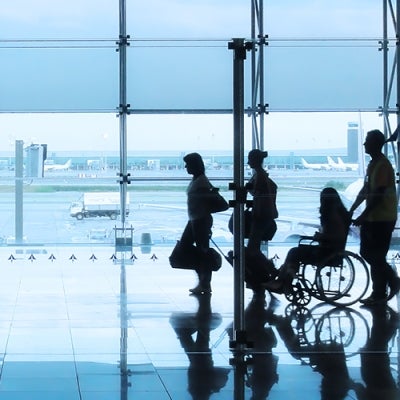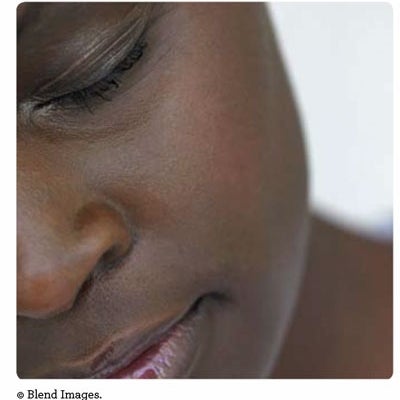Refine results
-
14 December 2012Book page
6 Issues raised outside the themes: Listening Tour Report
Research and literature: This section summarises research that is relevant to each sub-issue. It should be noted the research included in the report is not an exhaustive literature review, but a summary of the research that was presented to the Commissioner during the Listening Tour. -
14 December 2012Book page
Annual Report 2008-2009: Chapter 2
One of the Commission’s central functions is to undertake education programs that increase public awareness and generate discussion of human rights and anti-discrimination issues within Australia. -
Legal14 December 2012Webpage
Consultation on exposure draft National Human Rights Action Plan
The Australian Human Rights Commission makes this submission to the Attorney-General’s Department on the exposure draft of a new Human Rights National Action Plan which the Department has issued for comment. -
Legal14 December 2012Webpage
Inquiry into the Water Amendment Bill 2008
The Commission supports and commends the relevant state governments’ and the ACT government’s progress in referring constitutional powers to the Commonwealth, enabling water resources in the Murray-Darling Basin to be managed in the national interest, optimising environmental, economic and social outcomes. -
14 December 2012Book page
Chapter 1 - Introduction: Social Justice Report 2008
A united Australia which represents this land of ours; values the Aboriginal and Torres Strait Islander heritage and provides justice and equity for all. Vision of Reconciliation, Council for Aboriginal Reconciliation.[1] -
14 December 2012Book page
Social Justice Report 2001: Chapter 2: Mutual obligation, welfare reform and Indigenous participation: a human rights perspective
In recent years a mutual obligation approach has been adopted to reform public policy on welfare and employment issues. There has been much discussion about the applicability of this approach within an Indigenous policy context. It is seen by many as consistent with Indigenous cultural values such as reciprocity and an emphasis on community, as well as suggesting an antidote to the damage caused… -
14 December 2012Book page
Chapter 3 - Introduction: Social Justice Report 2009
When I commenced writing this chapter in 2008, Australia did not have a national Indigenous languages policy. However in August 2009, for the first time in Australia’s history, the Commonwealth Government launched a strategy for preserving Indigenous languages: Indigenous Languages - A National Approach 2009 (National Approach). The National Approach sets out the Commonwealth Government&… -
Disability Rights1 September 2018Webpage

Disability Rights: Inquiries and consultations
This page is the main entry point for information about and participation in current public inquiry and consultation processes by the Commission in the disability rights area. -
Children's Rights18 April 2013Speech
Walking the talk: Towards authentic child voice
It’s fantastic to be amongst so many people committed to the wellbeing of Australia’s children. I’m thrilled to have been invited today by Prue Warrilow, Brian Babington and Families Australia and feel honoured to deliver the Berry Street Childhood Institute Families Australia Oration as my first speaking engagement as inaugural National Children’s Commissioner. -
14 December 2012Book page
Chapter 4 - Introduction: Social Justice Report 2009
Homelands still belong to the people, we want to build homes on our land and live there. When we come to the homeland we come back to the peace and quiet. ... It is a much better environment on the homelands, better things for the children.[1] -
14 December 2012Book page
Native Title Report 2008 - Chapter 2
In my Native Title Report 2007, I reported on the changes that were made to the native title system during that year. The changes, which were made through two pieces of legislation which amended the Native Title Act, primarily affected: -
Commission – General22 July 2021Webpage
Privacy
This section explains the type of information that is collected by the Commission, how such information is used, under what circumstances and to whom it may be disclosed, and describes security measures in place on the website. -
14 December 2012Book page
13. Recreation for Children in Immigration Detention
The opportunities for children to engage in play and recreation have a critical impact on a child's experience of detention. However, the detention environment brings with it inherent difficulties in providing adequate opportunity for play and recreation. -
14 December 2012Book page
Chapter 4: Beyond the Apology - an agenda for healing: Social Justice Report 2008
On 13 February 2008 Prime Minister Kevin Rudd, on behalf of the Australian Parliament, made a historic and long overdue national Apology to the Stolen Generations. With eloquence and emotion, Prime Minister Rudd said what so many Australians have wanted to say, and what so many Indigenous peoples have needed to hear: -
15 July 2014Book page
Chapter 1: How far have we come? Looking back on 20 years of the Social Justice Commissioner role
1.1 Introduction This year marks 20 years since the establishment of the Aboriginal and Torres Strait Islander Social Justice Commissioner (Social Justice Commissioner) role under the Australian Human Rights Commission Act 1986 (Cth). When I first started in this position I was asked if any of the previous Commissioners had left any words or notes of advice. I answered them ‘no, but they all… -
14 December 2012Book page
Select Bibliography on Rural and Remote Education in Australia
This bibliography has been prepared by the Rural Education, Research and Development Centre, Townsville, Qld according to guidelines established by the Human Rights and Equal Opportunity Commission to assist in its inquiry into aspects of rural and remote school education provision in Australia. It attempts to include highly relevant, more recent, seminal, theoretical and policy-oriented… -
14 December 2012Book page
HREOC - Annual Report 2001 - 2002: Chapter 1: The Commission
The Commission is a national independent statutory body established under the Human Rights and Equal Opportunity Commission Act 1986. It has a President and five Commissioners. The five positions are currently held by three persons. -
14 December 2012Book page
Native Title Report 2006: Chapter 1: Indigenous Perspectives on Land and Land Use
If a group’s traditional country is not in a mining area they escape the injury to country that mining represents but have little opportunity to really develop industry and commerce that could support their communities.1 -
14 December 2012Book page
Native Title Report 2003 : Chapter 1
Australia is a wealthy nation. In 2003, Australia ranked fourth in the United Nations Human Development Index (1) indicating Australians enjoyed one of the highest qualities of life in the world. Overall, Australia ranks equal fourth with the highest life expectancy at birth (79.0 years) suggesting Australians are among the healthiest people in the world. (2) -
Race Discrimination14 December 2012Project

In our own words - African Australians: A review of human rights and social inclusion issues (2010)
In 2007, the former Race Discrimination Commissioner, Tom Calma, had a vision to develop a human rights initiative based on the experiences of African Australians, to inform future policy and programs.
